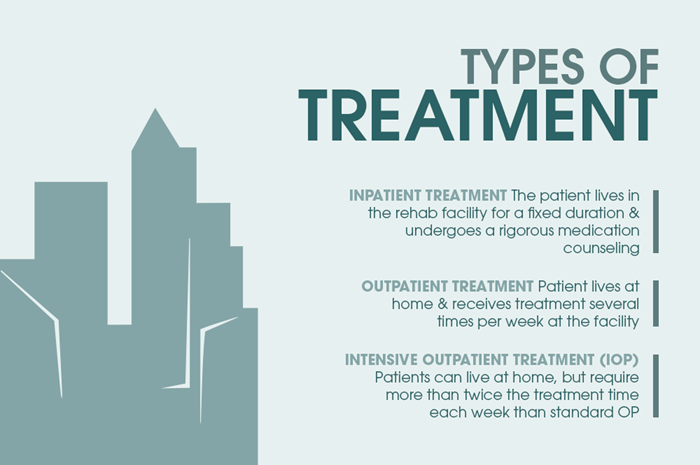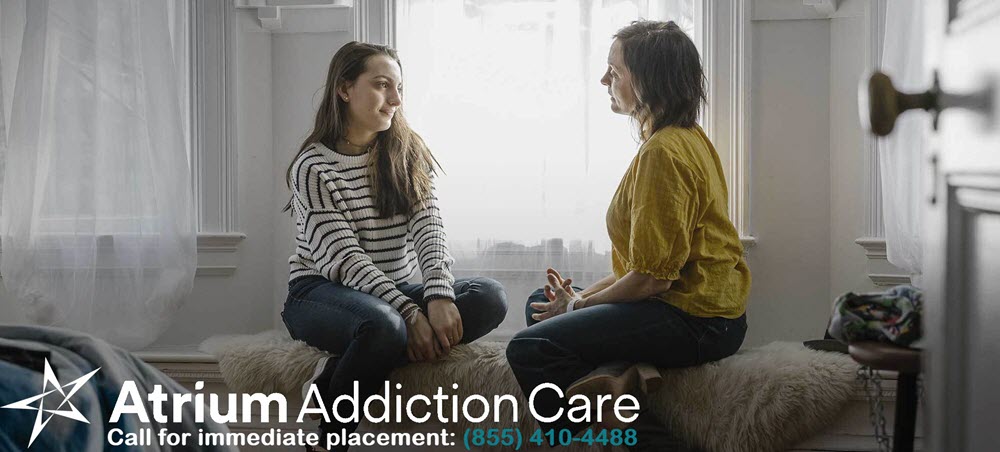Types of Addiction Treatment Programs
Immediate Placement Available at our Top-Rated Treatment Centers.
Please call us at (855) 410-4488. We work with most major insurance providers and offer flexible payment options!
Atrium Treatment offers a variety of choices and programs for individuals struggling with drug or alcohol addiction. Our inpatient treatment programs are designed for those who have more severe substance use problems and require 24-hour care. We admit both voluntary and involuntary patients.
If you or a loved one is strugling with substance abuse, please call us. We can help. (855) 410-4488.
Research studies on dependency treatment usually have classified programs into numerous basic types or modalities. Treatment techniques and private programs continue to progress and diversify, and many programs today do not fit neatly into conventional drug addiction treatment categories.
Most, nevertheless, start with cleansing and clinically managed withdrawal, typically considered the very first stage of treatment. Cleansing, the process by which the body clears itself of drugs, is created to manage the intense and possibly unsafe physiological impacts of stopping drug use. As stated previously, detoxification alone does not resolve the psychological, social, and behavioral issues associated with addiction and therefore does not generally produce lasting behavioral changes required for healing. Detoxing must thus be followed by a formal evaluation and referral to drug dependency treatment.
Due to the fact that it is typically accompanied by unpleasant and possibly deadly negative effects originating from withdrawal, detoxification is frequently handled with medications administered by a physician in an inpatient or outpatient setting; for that reason, it is described as "medically managed withdrawal." Medications are offered to help in the withdrawal from opioids, benzodiazepines, alcohol, nicotine, barbiturates, and other sedatives.

Long-Term Residential Treatment
Long-term treatment provides care 24 hr a day, generally in non-hospital settings. The best-known property treatment design is the restorative neighborhood (TC), with planned lengths of stay of between 6 and 12 months. TCs concentrate on the "resocialization" of the specific and utilize the program's entire neighborhood-- including other residents, personnel, and the social context-- as active parts of treatment. Dependency is seen in the context of an individual's social and psychological deficits, and treatment concentrates on developing personal accountability and responsibility in addition to socially efficient lives. Treatment is highly structured and can be confrontational at times, with activities developed to help homeowners take a look at harmful beliefs, self-concepts, and devastating patterns of behavior and embrace brand-new, more unified and positive ways to communicate with others. Numerous TCs provide comprehensive services, which can include work training and other assistance services, onsite. Research study reveals that TCs can be modified to deal with individuals with unique requirements, including adolescents, females, homeless individuals, people with extreme mental illness, and people in the criminal justice system.
Short-Term Residential Treatment
Short-term residential programs provide extensive but relatively short treatment based upon a customized 12-step method. These programs were initially created to deal with alcohol issues, however throughout the drug epidemic of the mid-1980s, lots of began to deal with other kinds of compound use disorders. The initial property treatment design included a 3- to 6-week hospital-based inpatient treatment phase followed by extended outpatient treatment and participation in a self-help group, such as AA. Following stays in property treatment programs, it is necessary for people to remain participated in outpatient treatment programs and/or aftercare programs. These programs assist to lower the danger of relapse as soon as a patient leaves the residential setting.
Outpatient Treatment Programs
Outpatient treatment varies in the types and intensity of services offered. Such treatment costs less than property or inpatient treatment and typically is preferable for individuals with tasks or extensive social supports. It needs to be noted, nevertheless, that low-intensity programs might use little bit more than drug education. Other outpatient models, such as intensive day treatment, can be comparable to residential programs in services and effectiveness, depending on the private client's qualities and needs. In numerous outpatient programs, group counseling can be a major part. Some outpatient programs are also designed to deal with patients with medical or other psychological health problems in addition to their drug conditions.
Individualized Drug Therapy
Individualized drug counseling not only focuses on lowering or stopping illicit drug or alcohol use; it likewise addresses associated areas of impaired performance-- such as work status, unlawful activity, and family/social relations-- in addition to the material and structure of the client's recovery program. Through its emphasis on short-term behavioral goals, personalized therapy helps the client develop coping methods and tools to avoid drug use and keep abstaining. The dependency counselor encourages 12-step participation (a minimum of a couple of times weekly) and makes recommendations for needed supplemental medical, psychiatric, work, and other services.
Group Counseling
Lots of restorative settings use group therapy to profit from the social support offered by peer discussion and to help promote drug-free way of lives. Research has shown that when group therapy either is offered in combination with individualized drug therapy or is formatted to reflect the concepts of cognitive-behavioral therapy or contingency management, positive outcomes are attained. Presently, researchers are checking conditions in which group therapy can be standardized and made more community-friendly.
Call us today to speak with an addiction expert: (855) 410-4488.

